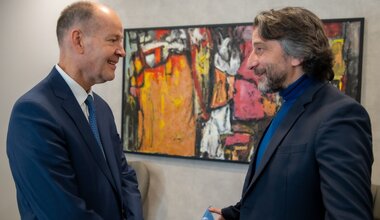SRSG Ziadeh Hosts Roundtable on Early Marriage and the Rule of Law at UNMIK
The practice of early and forced marriages must come to an end, and women and girls given full emancipation.
This was the central message that came out of a round table with Kosovo lawyers and law students, during an UNMIK event that included the screening of two films to mark the global 16 Days of Activism against Gender-Based Violence campaign.
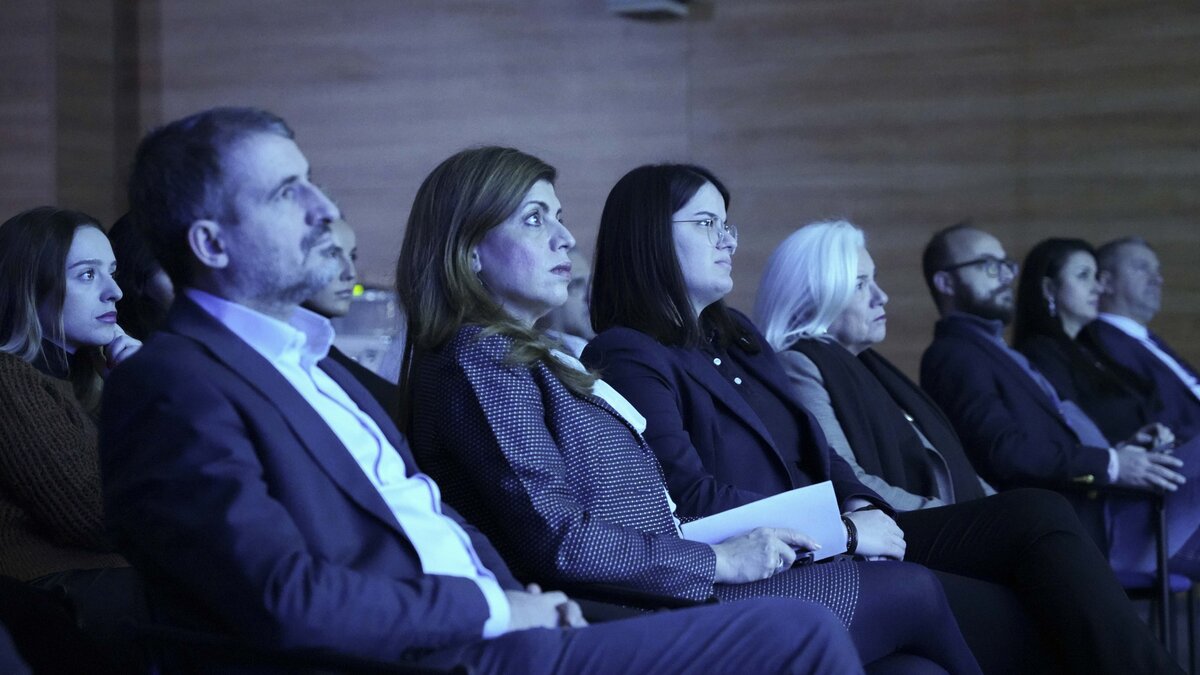
“The [films have] shown a clear case of discrimination against young women who are forced into early marriage. Something has to be done to ensure education and emancipation of [all] young women to allow them to have a choice in their lives,” North Mitrovica University law student Milica Pečinoćević, shared.
The discussion was chaired by the Special Representative of the Secretary-General and Head of UNMIK Ms. Caroline Ziadeh, who told the audience gathered that the time had come for all of society to prioritise the full inclusion of women.
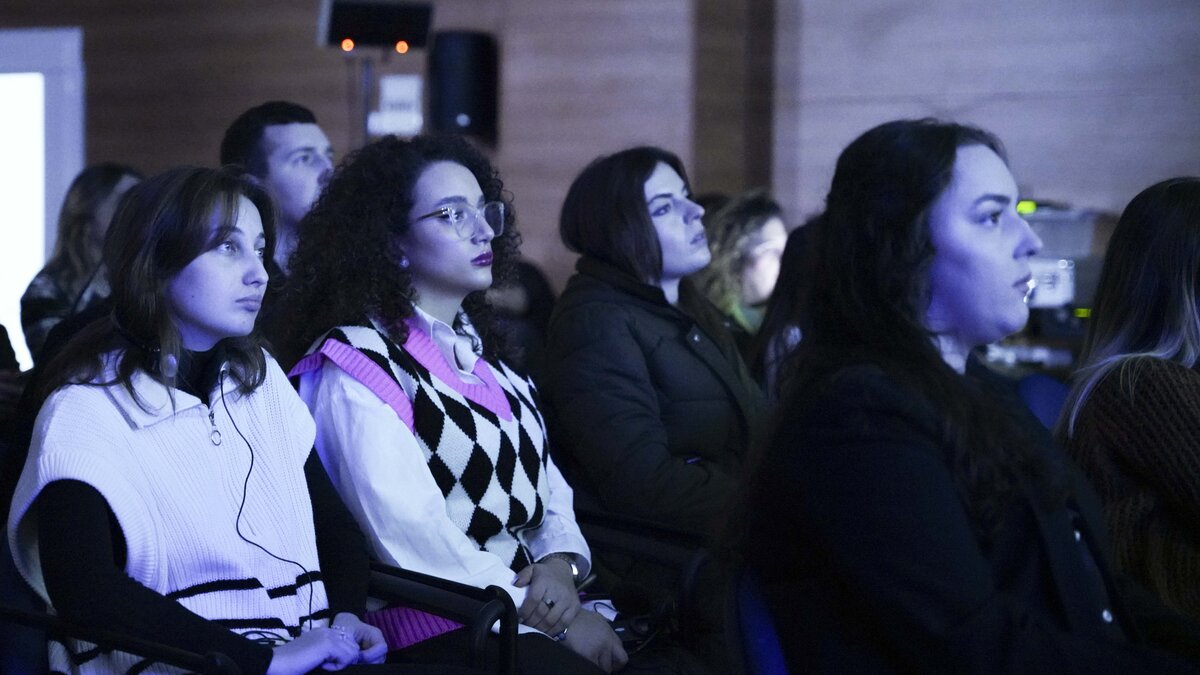
“We must help women and girls to be protected but also reintegrated into social networks and to be empowered and access platforms to make their voices heard,” she said.
Two UNMIK-produced films, including the short fictional film Romni and the accompanying short documentary Like A Real Woman, focus on the harmful practice of early and forced marriage – while also showcasing the powerful activists fighting to eradicate this human rights violation. The roundtable included Kosovo Law Institute (KLI) staff and final-year students at the University of Pristina Law School and the North Mitrovica University Law School.

KLI researcher Flamur Kabashi highlighted the vital role that all parts of society, including educational institutions, play in shifting societal norms.
“We must work on enforcing the triangle between the family, schools, and students. It is very important that young people have support from their families, education from the schools and are able to have trust, and learn about and discuss such topics in order to be well-informed.”
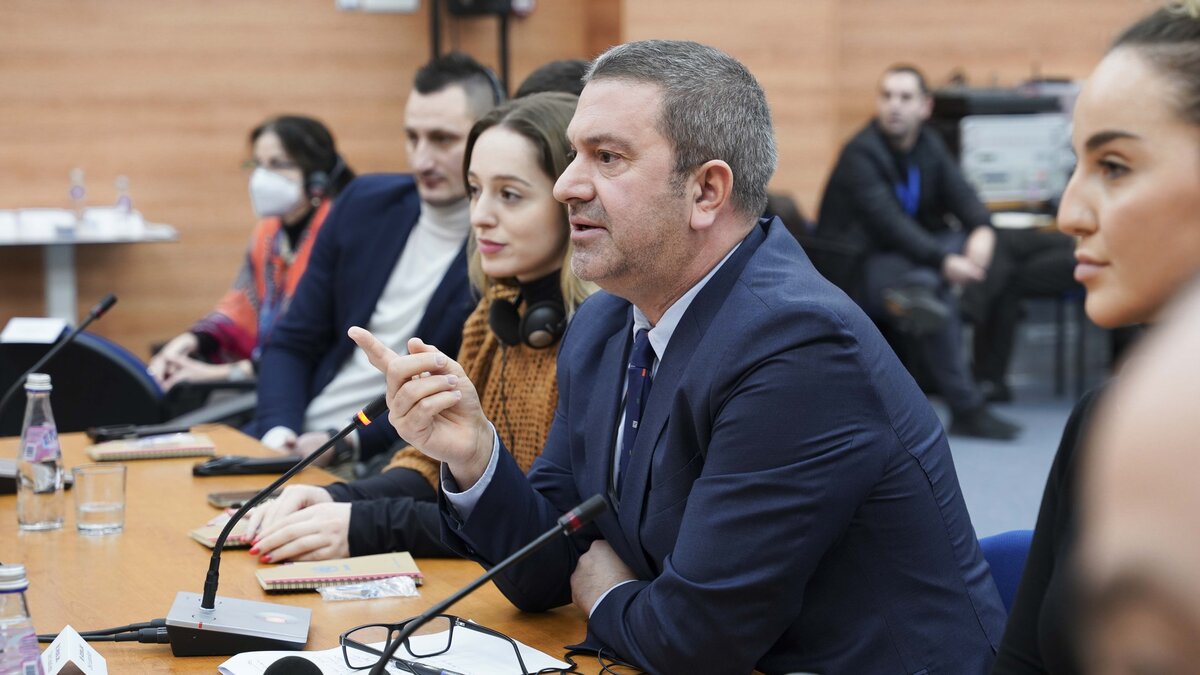
A number of students shared how this “awful cultural practice” exists across all communities in Kosovo.
Early marriages mostly impact girls, isolating them from their communities and robbing them of their childhood. Girls who marry before reaching adulthood are more likely to drop out of school, experience domestic violence and have restricted access to financial resources. They are also at higher risk of complications during pregnancy and childbirth. Globally, more than 765 million people living today were married as children – 85 per cent of whom are women and girls.
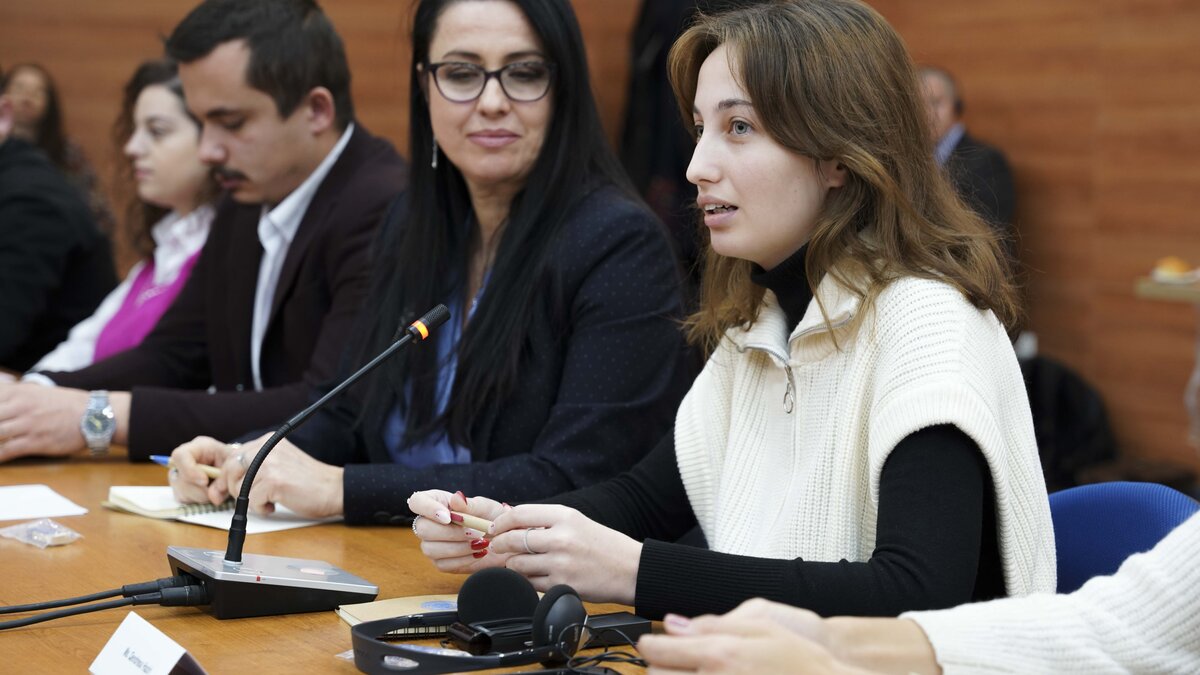
Arrita Rezniqi is the coordinator of KLI’s Free Legal Aid Center, supported by UNMIK, which provides support to a variety of target groups including victims of gender-based violence, those facing financial hardship and people from non-majority communities. She highlighted the importance of discussing forced and early marriage practices.
“Kosovo institutions, and especially the justice system, need to handle such cases with utmost care and priority… in line with the purpose of the legal provisions itself.”
KLI Executive Director Ehat Miftaraj, thanked UNMIK for its cooperation and encouraged target groups to reach out to KLI and make use of its available resources.
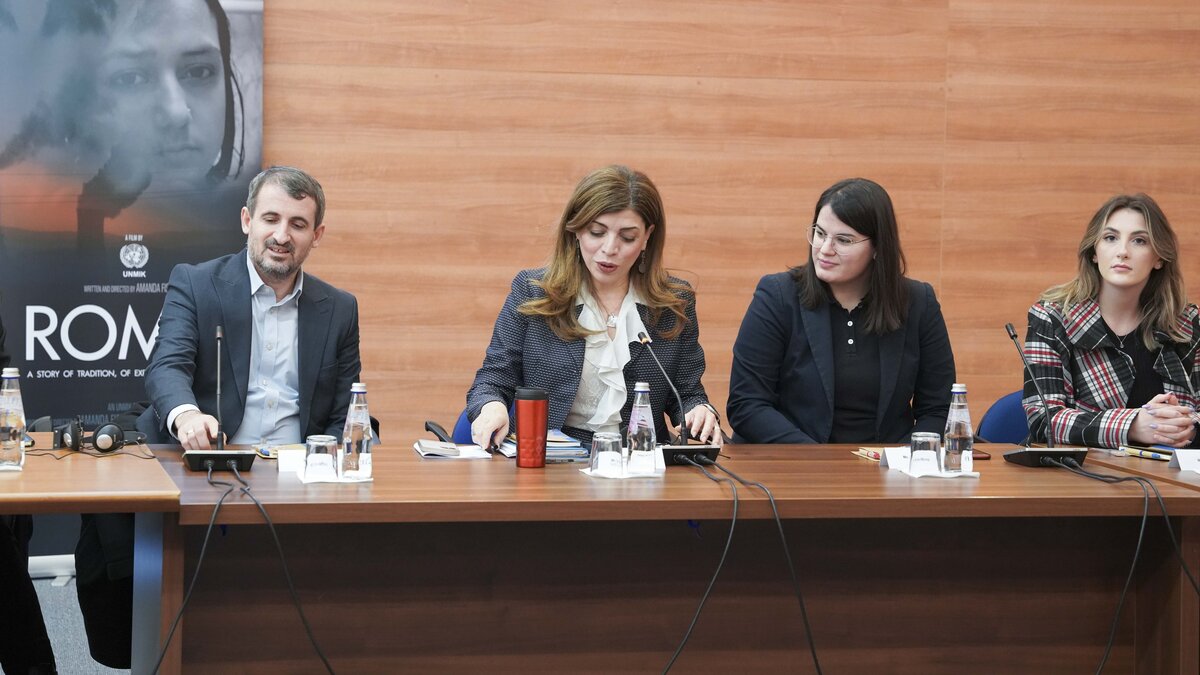
Effective implementation of relevant laws, access to education and social services in one’s own language, economic empowerment opportunities and the active involvement of men were some of the recommendations put forward by participants.
SRSG Ziadeh reaffirmed UNMIK’s commitment to gender equality and the empowerment of women.
“We do so by establishing partnerships to provide women with opportunities for economic development and creating platforms for them to voice their needs, challenges, and priorities; and, by supporting organizations dealing with survivors of gender-based violence,” she said.
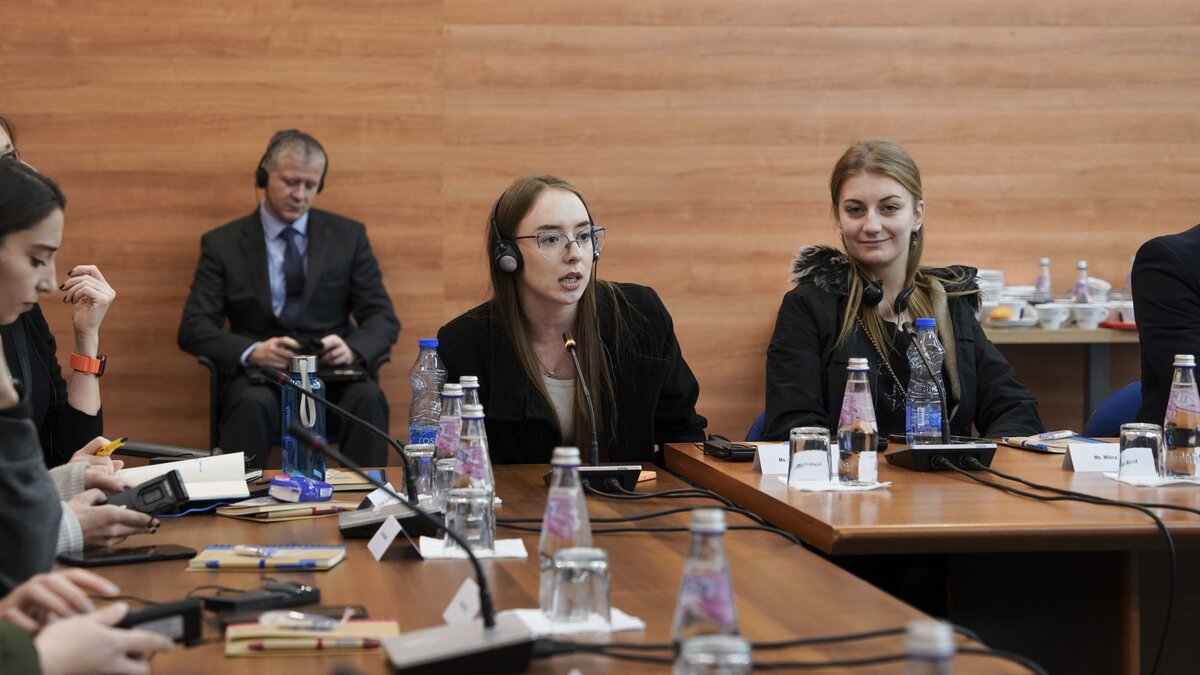
 UN
UN United Nations Peacekeeping
United Nations Peacekeeping



